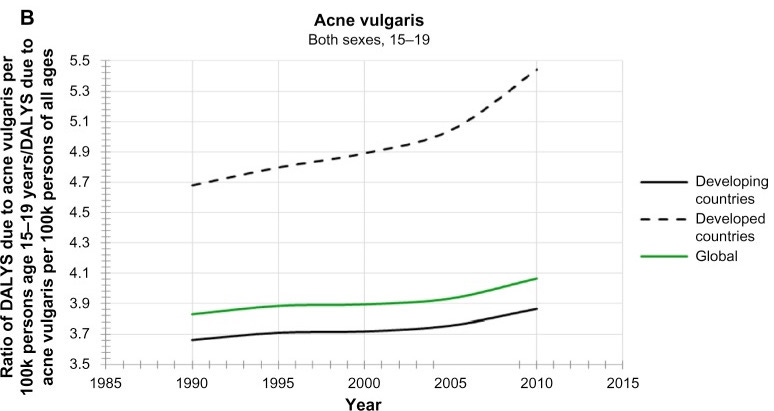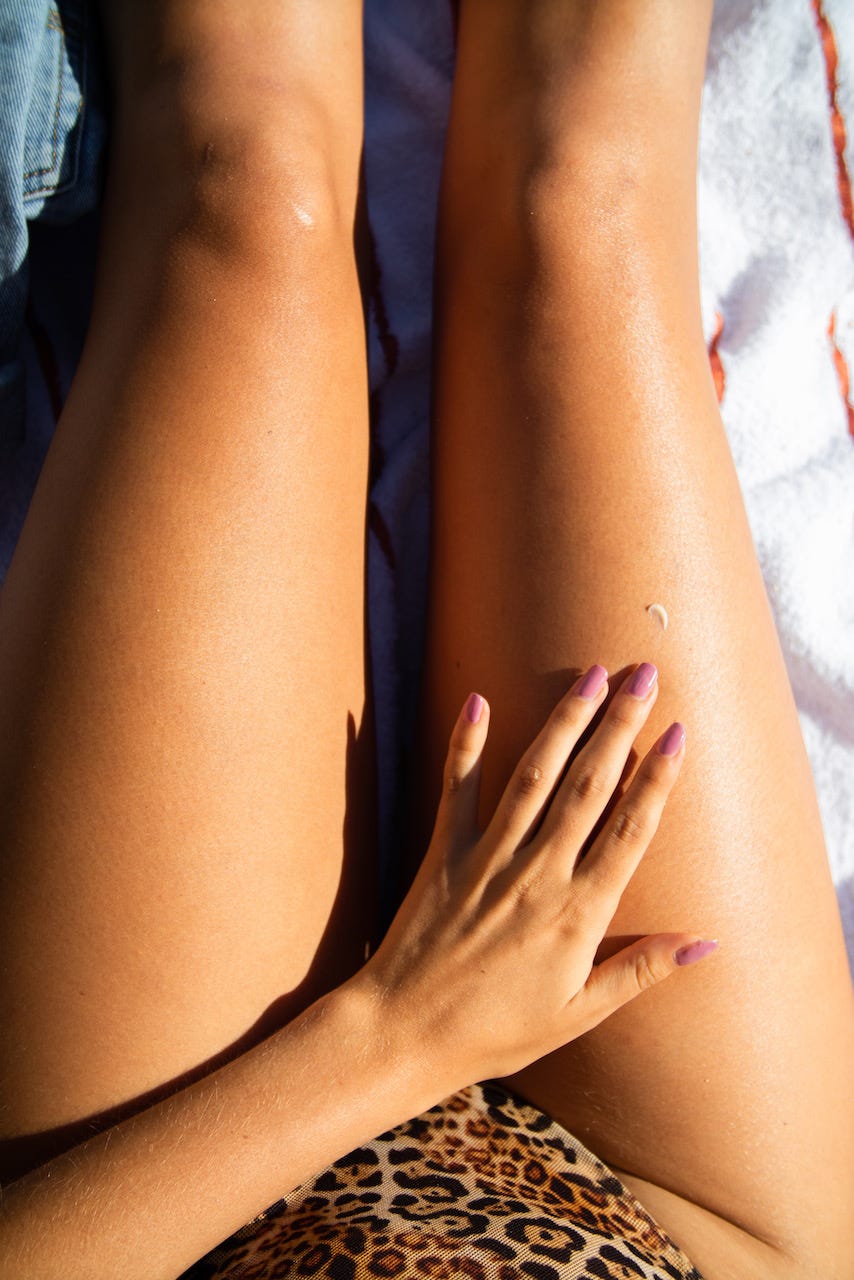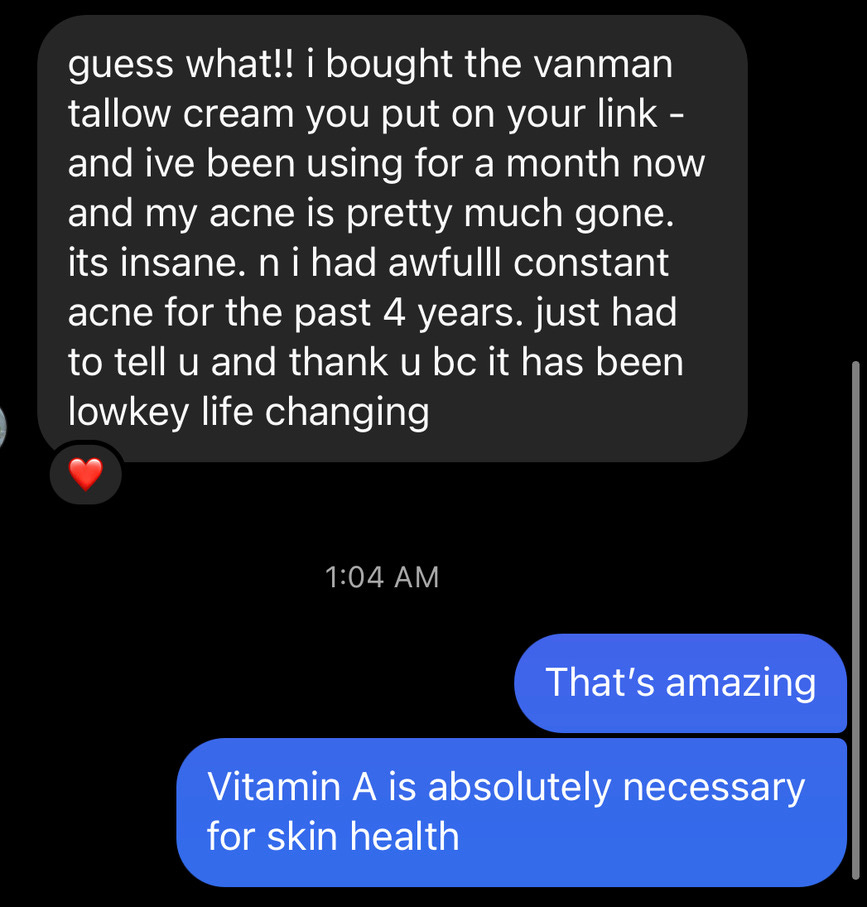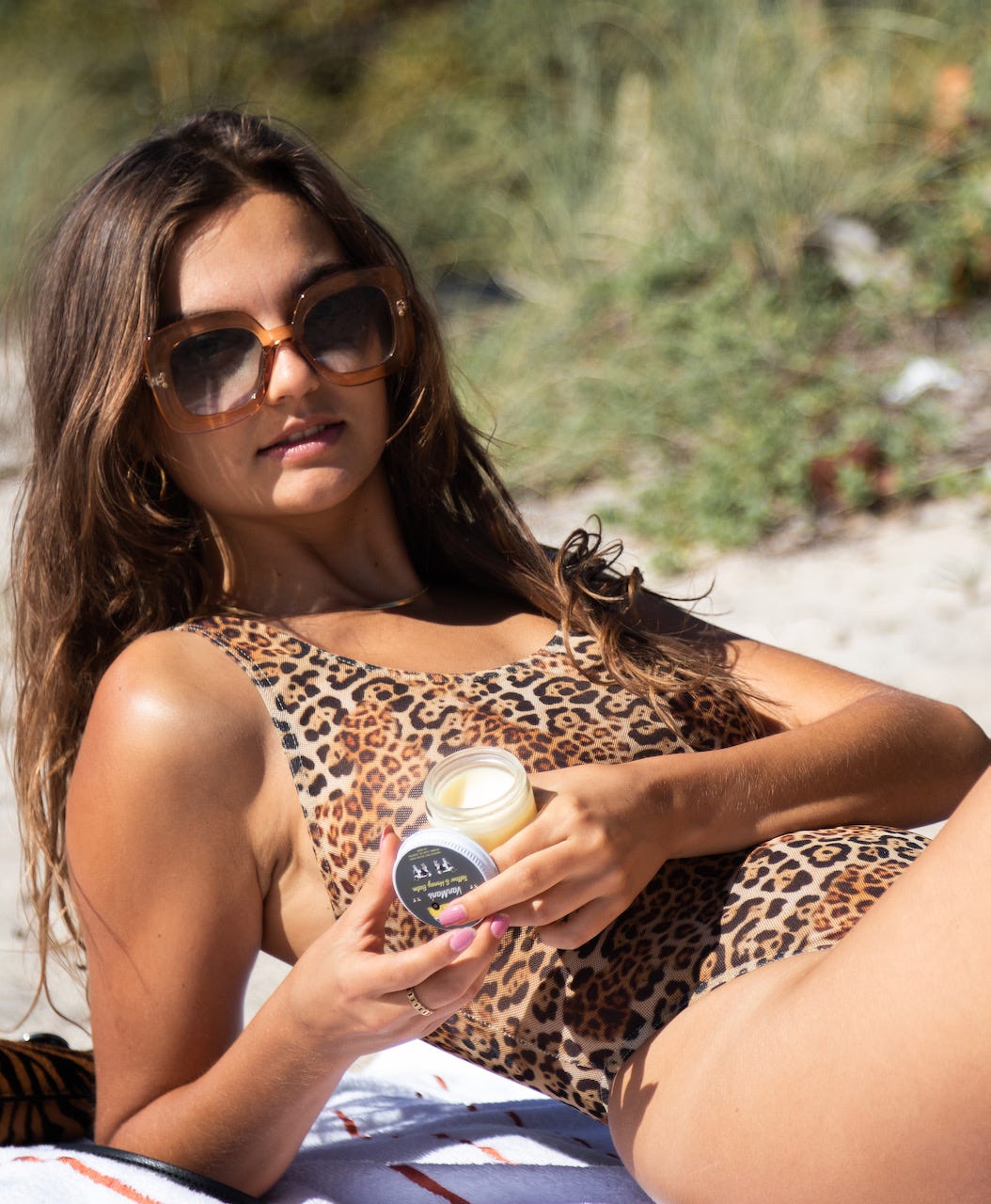What if I told you that a brand new skincare product—that was, cheap, natural, effective, and good for the environment—had just been invented?
One which is so instantly appealing that girls (who have great intuition for these things) will shamelessly steal it as soon as they feel it for the first time?
Sounds like it would pose quite a threat to the skincare industry.
Thing is, there is such a magical substance. It’s called tallow, aka beef fat, and while it’s not new, it can replace an entire medicine cabinet of petroleum-derived skincare concoctions.
Here’s why.
The problem with the skincare industry
Walk around any college campus, and you’ll see hundreds of 20-year-olds, at their supposed peak of physical attractiveness, with terrible skin.
It’s really sad to see. And the skincare industry greedily profits off this mass insecurity, which it will never fix due to its fundamental philosophical flaw:
You don’t have bad skin because of an absence of some artificial chemical.
So why would its presence solve your skin problems?
It wouldn’t, and that’s why people continue to have worse skin year after year.
To be fair, skin health is largely affected by what you put into your body as well as what you put on it.
But the artificial products are certainly not helping.
Artificial products
Read between the lines of any cosmetics store and you’ll notice that every brand seems to have one thing in common:
They hate nature.
Even when a product advertises a “natural” ingredient, it’s bottled along with 13 other fake ones.
Why? because you can’t patent nature.
Make no mistake, the artificial ingredients are there not for your benefit but for theirs.
A proper skincare product should therefore include only natural ingredients.
There are a lot of natural products. But tallow, which is the fat that has been extracted from beef cattle (no it doesn’t smell or taste like “meat”), is particularly special.
Why?
Vitamin A
Vitamin A, aka retinol, is easily the most important vitamin for skin health.
Many skincare products include some synthetic variety of retinol, and even accutane, an incredibly toxic drug which causes permanent DNA damage, is based on retinol (chemical name is Isotretinoin).
That is because retinol is the primary vitamin needed to form new skin proteins, and deficiency causes dry skin, skin lesions, chicken skin, eczema, and acne.
And beef fat is high in retinol, as are all high quality animal fats.
This natural variety of retinol encourages skin health but is not toxic like its synthetic counterparts.
Saturated fat
Skin moisturizes itself by producing its own oil called sebum.
Artificial moisturizers naturally contain some type of oil to mimic this process.
The synthetic ones use petroleum-derived oils, which are obviously absurd.
Then there are natural ones like “jojoba oil” which are actually all seed oils.
The other common options are coconut oil and shea butter, which are plant oils that contain a lot of saturated fat. But the type of saturated fat they contain can clog your pores, since it’s different from what human fat is made of.
What saturated fat doesn’t clog your pores? Tallow of course. Reason being tallow has a fatty acid composition that is very similar to human body fat.
When you put it on your skin, the body recognizes it, and doesn’t start to break out like it might with coconut oil.
Makes sense, since you’re more closely related to a cow than a coconut
Chemical-free (it’s food)
Did you know that you absorb things more easily through the skin than by eating them?
When you digest food, a whole host of enzymes, microbes, detoxifying organs have to approve it before letting it into your blood.
But when you put something on your skin, it gets absorbed right into the blood with little filtration.
That’s why if you wouldn’t eat something, you shouldn’t put it on your skin. And tallow is one of the few edible skin products out there.
Versatility
Walk into any cosmetics store and you’ll be appalled by the variety of products for inanely specific use-cases.
After-shower, during shower, sun exposure, cold weather, whatever.
There is no need for such options. As you learned in the Vitamin A section, vitamin A deficiency is at root of most skin issues.
That’s why tallow can be used everywhere and for everything—on pimples, blemishes, blisters, chicken skin, eczema, acne, or on your whole face.
Use it as chap stick or lip balm.
You can even put it on cuts and other injuries. (Fun fact, tallow also has vitamin K2 which helps with blood clotting).
An entire cabinet of petroleum-derived plastic-tubed chemicals with a global supply chain is horribly wasteful and not even necessary (just look at the skin of any tallow user, like the girls in this article).
Good for the environment
If something is good for you, it must have some downside— either bad for the environment, or taste bad, whatever.
At least, most people think that way.
But the universe doesn’t necessarily work like that. There are many win-win situations in reality, and tallow is a great example.
Not only is it good for you, it’s good for the environment too.
To understand why, let’s consider the competition.
Obviously, the petroleum based products are hopeless. But “natural” is not always good either. E.g., the shea nut industry exists exclusively to make skincare products.
But tallow is a natural byproduct of beef which we eat anyway.
Which comes from cows that eat grass which would have grown anyway.
From land which can’t be used for anything else and on which rain would have fallen anyway…
People can’t eat grass, so cows are a perfect device for turning inedible fiber into food, and now, skincare products.
It’s a perfect use of resources, instead of digging up ancient dinosaur fossils to convert in factories your plastic bottled lotions and potions and shipping them all over the world.
It works
Every photo in this article is of an actual avid tallow user. No retouching or photoshop.
I will let my friend’s girlfriend’s testimonial speak for itself:
The best tallow to use?
My personal favorite brand (pictured in all these photos) is made by VanMan.
But there are many tallow products on the market. Toups and Co, which makes makeup, also has a good one. And Fatskn makes one out of Canada.
Look for no artificial additives—just grass fed tallow; and maybe olive oil, honey, or some essential oils.
How to use
Put it wherever needed, as often as you want.
I personally use it on my face and back of my arms.
Be sure to buy a few though. They tend to disappear…
It works so well that at this point I’ve started buying them as gifts and just giving them away, considering it my civic duty for the betterment of society’s skin health.
I encourage you to do the same.












I’m so excited for my Tallow Balm to arrive. I formulate my own personal hygiene/skin care, using saturated plant fats & butter, which my skin loves. I was never able to use petroleum based products as they cause dermatitis. While awaiting my overseas shipment from VanMan, I’ve been experimenting with local beef tallow. It’s not fully refined (I couldn’t find any that met my standards) so it does have a mild beefy odour, but that’s not too bad.
However, the skin on my face, which is ultra sensitive, isn’t loving it. Body loves it. But I have super tiny pores on my face - invisible to the naked eye - & it seems to be causing either mild acne &/or dermatitis & exacerbating my rosacea (which is mostly cured but still flares up when exposed to irritants). Weirdly, it absorbs wonderfully on my body but doesn’t on my face, which I attribute to my smaller pores, but still - there ARE other fats which absorb well on my face. I have dry skin, which seems to be genetic. My theory is that this particular tallow was contaminated somehow during rendering & packaging, though it came in a glass jar. But if it has petroleum products or perhaps pesticide residue that would explain my reaction. Still doesn’t explain the lack of absorption though & the fact that in addition to irritating my skin, it looks & feels even drier than usual (than if I hadn’t used any moisturiser), but only in my face! Elsewhere is supple. Have you ever heard of anyone having similar issues? If so, do you have any suggestions?
Do you suggest not using any skin care products that include jojoba oil?